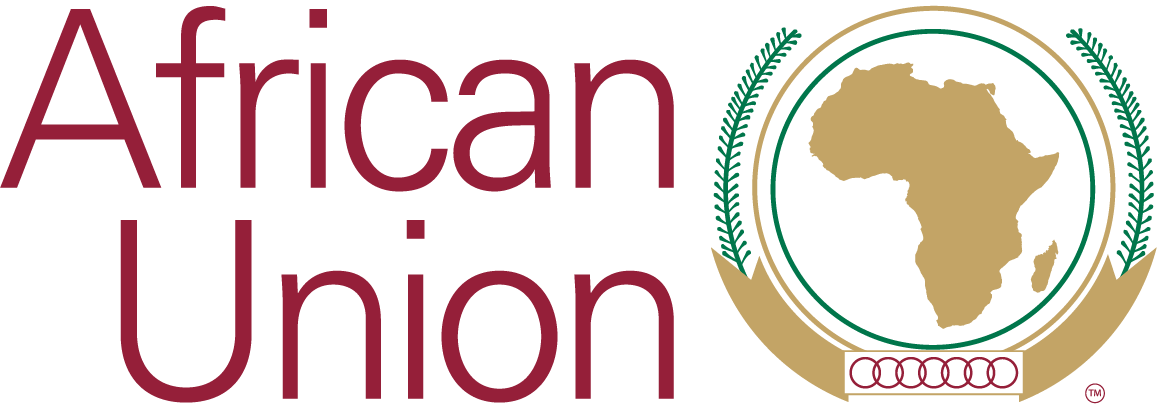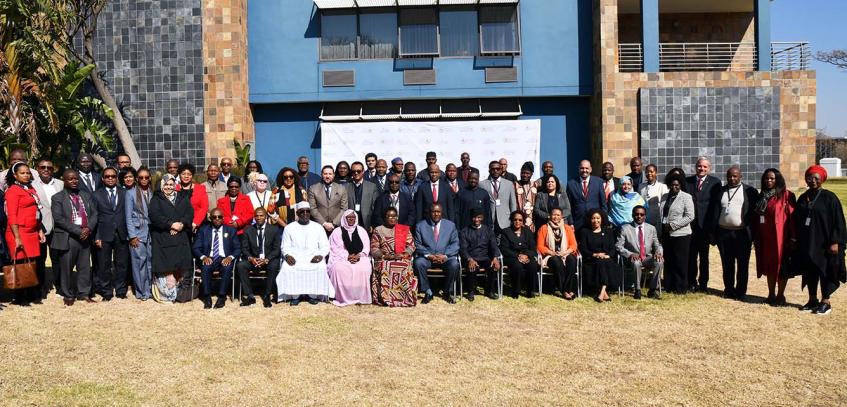The Pan-African Parliament and the African Union (AU) Peace and Security Council (PSC) have opened a milestone Joint Consultative Meeting at the Pan-African Parliament Headquarters in Midrand, South Africa, under the theme “Enhancing Institutional Synergy and Collaboration for Sustainable Peace and Security in Africa”. This historic meeting aims to align legislative oversight with peace and security mandates across the continent in line with the AU Agenda 2063.
The President of the Pan-African Parliament, HE. Chief Fortune Charumbira, set the tone by acknowledging the gravity of the moment.
“This meeting is not just a procedural requirement; it is a beacon of Africa’s commitment to peace, security, and the voices of our people in shaping the continent’s destiny,” he declared, referencing persisting crises in Eastern DRC, Libya, West Africa, the Sahel, and Cabo Delgado.
He reaffirmed the constitutional obligation of PAP under Article 18(1) of the PSC Protocol to collaborate closely with the PSC, pointing out that “arguments suggesting the Pan-African Parliament duplicates PSC functions are rooted in a misunderstanding of our complementary roles.”
HE. Charumbira, underscored the democratic mandate parliaments provide to government and peace processes.
“Without Parliament, there is no people’s approval of peace initiatives. The Pan-African Parliament’s presence ensures Africa’s citizens are included in peace and security processes,” he highlighted. Highlighting the people-oriented mandate of the Pan-African Parliament’s activities, he further added, “Our MPs are accessible to communities, supplying critical evidence-based conflict information that can be used for early warning and mediation.”
Recalling lessons in history, he quoted the 2008 Mauritanian coup: “Gaddafi's mediation failed because it ignored the people’s voice. This teaches us that sustainable peace is people-driven.”
On accountability, he commended the AU Commissioner, further adding, “Commissioner Bankole has consistently reported to the Pan-African Parliament, a standard we wish all commissioners to follow.”
He ended on, “Africa must improve governance to address conflict if it is to claim the 21st century.”
HE. Ambassador Bankole Adeoye, AU Commissioner for Political Affairs, Peace and Security, reiterated Africa’s collective commitment to peace, pointing out: “Africa continues to grapple with recurring conflicts, terrorism and violent extremism, unconstitutional changes of government, and climate-related insecurities.”
He cautioned that “external interference and rising defense expenditure by the rest of the world makes our job more difficult as our resources for peacekeeping decline.”
Ambassador Adeoye spoke of region-wide concerns like Somalia's transition, Sudan’s displacement crisis, South Sudan’s precariously volatile stability, and progress in DRC and Rwanda in accordance with June 2025 Washington Agreement and Nairobi Process. He believed, “Peace must prevail irrespective of where agreements are signed.”
He described the Sahel, Lake Chad Basin, and Central Africa as “epicentres of terrorism and governance challenges”, while Gabon’s return to the AU fold was described as “a positive example of progress”.
Laying down thematic agendas, Ambassador Adeoye urged “early warning for early action, a strong continental position on climate security at COP30, and investment in youth and women to sustain peace.”
Highlighting, “The African Peace and Security Architecture and Governance Architecture require a critical review with THE Pan-African Parliament’s involvement.”
Championing sustainable financing, he urged the Pan-African Parliament to voice strongly: “Our peace and security work remains underfinanced, and we require parliamentary voices to secure the resources for African solutions.”
He concluded, “Let us leverage champion Heads of State in reconstruction and counterterrorism while harmonising our joint efforts with the Silencing the Guns by 2063 agenda.”
Referring to Haile Selassie, he reminded delegates: “History teaches us that unity is strength.”
AU Peace and Security Council Chairperson, H.E Ambassador Rebecca Amuge Otengo, emphasised the significance of the meeting towards the fulfilment of Article 18 of the PSC Protocol.
“This consultative meeting is a promise to support strengthened cooperation between PAP and PSC essential for African peace and security,” she stated.
She emphasized interconnected challenges of terrorism, climate change, unconstitutional government changes, transnational crime, and cybercrime. Appreciating the Pan-African Parliament’s direct involvement in election observation and fact-finding missions, she observed, “Harnessing the Pan-African Parliament’s reach to promote PSC decisions among member states will advance implementation.”
Ambassador Otengo recognised strategic areas for collaboration, pointing out the youthful demography of Africa: “Sixty percent of Africa’s population is under 25. Economic instability risks making youth vulnerable to extremist recruitment.”
She urged value addition to Africa’s vast natural resources to “reduce grievances, create jobs, and promote inclusive prosperity.”
She ended by urging the “building of an organised architecture for cooperation to harness PAP's legislative and advocacy efforts for peace, development, and integration.”
She reiterated, “Peace, security, and development are indivisible for Africa's stability.”
South Africa’s Department of International Relations and Cooperation (DIRCO), representative, Dr. Phakamisa Siyothula emphasised that the entire continent’s peace is what South Africa is committed to.
“This conference reaffirms Agenda 2063’s Aspiration 4 for a peaceful and secure Africa,” stated Dr. Siyothula.
Reflecting on South Africa’s contribution, Dr. Siyothula went on to say:
“Promotion of peace and stability is a cornerstone of our foreign policy. We actively support mediation, peacekeeping, and the mandates of PAP and PSC.”
Appreciating the challenges ahead but expressing the necessity for cooperation: “Through sustained engagements such as this, Africa can build lasting peace and security.”
Quoting Nelson Mandela, Dr. Siyothula ended with the following:
“Let there be justice for all. Let there be peace for all. Let there be work, bread, water, and salt for all.”
As the Joint Consultative Meeting continues, the AU PSC and the Pan-African Parliament are expected to adopt conclusions outlining priority collaboration areas, agree on a roadmap for structured PSC-Pan-African Parliament engagement, and identify thematic areas for cooperation such as youth in peacebuilding, climate security, and women in peace processes. The outcomes are set to strengthen the capacity of Pan-African Parliament Committees to engage in AU PSC processes while institutionalising annual PSC-Pan-African Parliament joint retreats, ensuring Africa’s commitment to sustainable peace and security is achieved.
-Ends-








